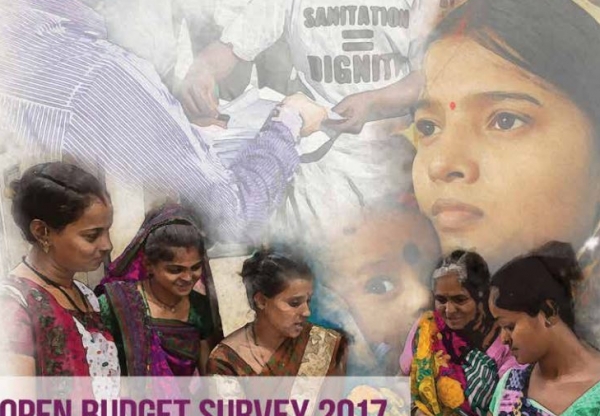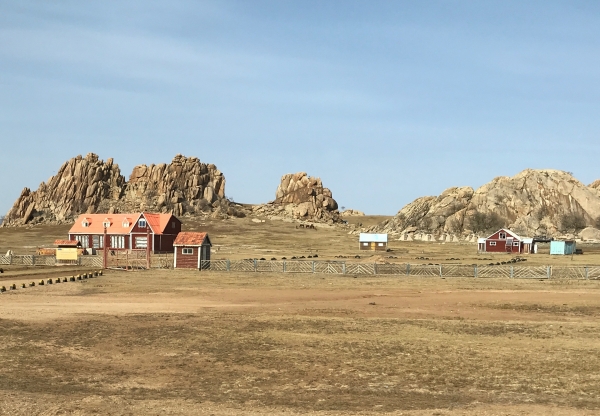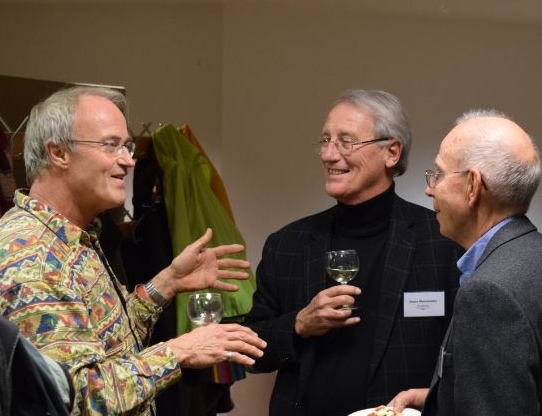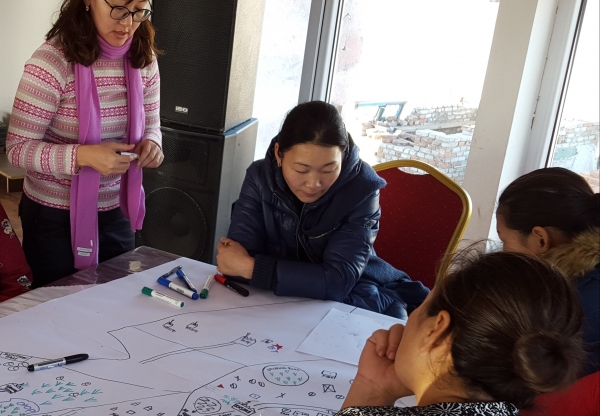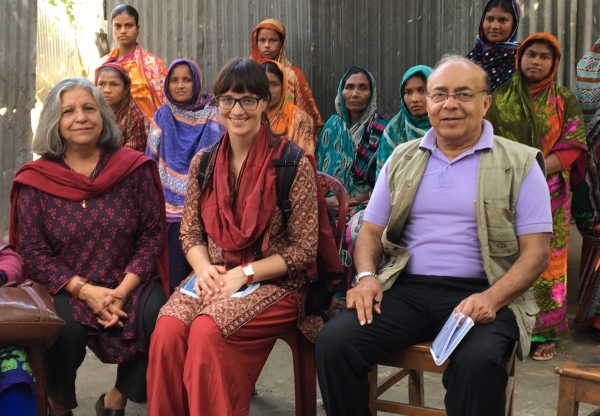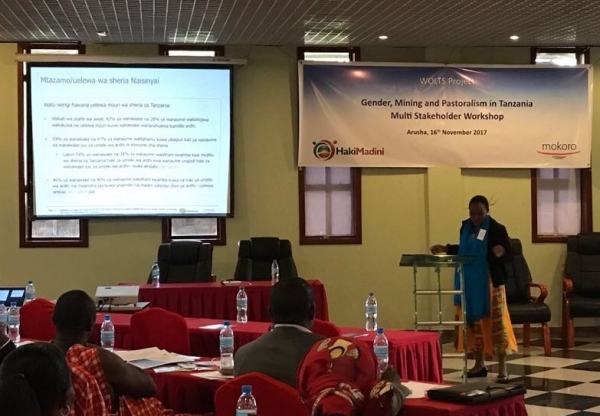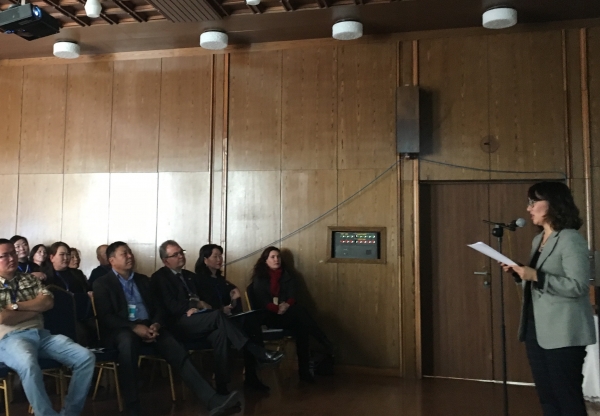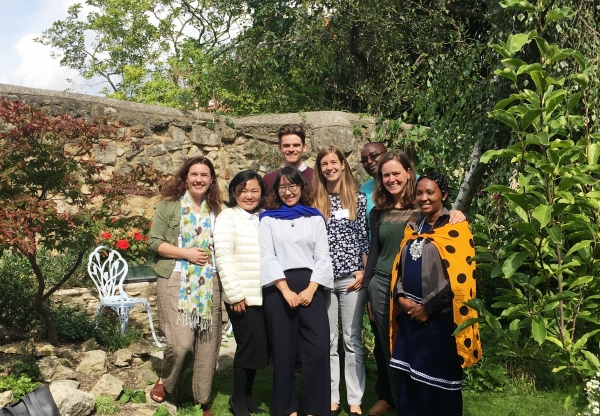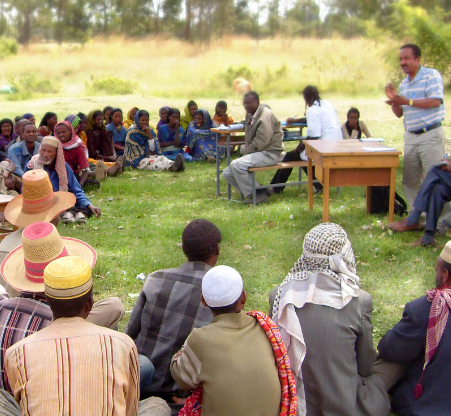Mokoro
Supporting international development
News
8 March 2018
Mokoro Principal Consultant Alta Fölscher joined a panel at the launch of the Open Budget Survey 2017 in February 2018. The event, held in London, presented discussions on the latest findings from the survey on the state of government budget transparency and accountability in 115 countries around the world. Topics that were discussed included which countries had made progress and which had regressed, what drives improvement, what can different stakeholders influence within governments and externally to encourage more open and accountable budgets.
Launched in 2006, the Open Budget Survey (OBS) is the world’s only independent, comparative assessment of the three pillars of public budget accountability: transparency, oversight and public participation. The 2017 survey was the sixth edition of this biennial assessment which evaluated 115 countries across six continents, adding 13 new countries to the survey since the last round in 2015.
You can watch event here
Or access the Open Budget Survey 2017 here
8 March 2018
Today, on International Women’s Day, Mokoro is excited to be publishing a debut WOLTS blog piece on women’s property rights by Narangerel Yansanjav, a key team member of our WOLTS project team. The piece, titled “Property Rights in Mongolia – Making Space for Women?”, is being simultaneously published in our Mokoro newsletter and on the Land Portal’s blog page. Nara’s story is about the importance of changing the little things in order to create much bigger change – in this case about making space for women’s names on land registration forms. Read Nara’s true story here. Please sign up to keep in touch with WOLTS latest news via our webpage – where you can also download “Gender, Land and Mining in Mongolia”, our first WOLTS research report. Happy International Women’s Day to you all!
18 January 2018
On Friday 12th January Mokoro held a seminar at Wolfson College to celebrate its 35 years of working in the development sector. The seminar looked at the future of development and the growing importance of the private sector.
This was Mokoro’s largest seminar to date and proved to be a fitting celebration as long-time and new friends of Mokoro got together after the seminar. We would like to thank everyone who joined us for this event, especially the speakers and Elizabeth Hodson, who chaired the event.
If you weren’t able to attend but would like to find out more about about the seminar you can view the speakers’ presentations here. To find out about future events follow us on Twitter and sign up to the Mokoro mailing list.
10 January 2018
“Gender, Land and Mining in Mongolia” is the product of two years of rigorous field research in Mongolia in collaboration with the Mongolian NGO, People Centered Conservation (PCC). It is the first country research report by the WOLTS (Women’s Land Tenure Security) project team at Mokoro and involved repeat rounds of both quantitative and qualitative participatory fieldwork to validate results.
Among other findings, the WOLTS Mongolia research has uncovered the phenomenon of fake divorce and documented numerous ways in which mining is exacerbating stresses on herding families’ lives.
To download the full report and a summary of key findings and recommendations please visit the WOLTS web page.
10 December 2017
In 2017 Mokoro completed mid-term evaluations for its school feeding programmes in Bangladesh, Lao PDR and Nepal. School feeding has been part of the global portfolio of the World Food Programme (WFP) for the last 45 years. Through its long-term engagement in this area the agency has become a leading player worldwide. The full reports from the evaluation can be downloaded here. In addition, Christine Fenning and Jane Keylock, team members from the assignment, have written a review of the assignment. Read the full article.
30 November 2017
On Thursday 16 November 2017 members of the WOLTS team hosted a ‘Multi-Stakeholder Workshop on Gender, Mining and Pastoralism in Tanzania’ in Arusha, Tanzania. For the past 18 months Mokoro and HakiMadini have been working together in Tanzania on a long-term practical and action-oriented strategic research project on women’s land tenure security – the WOLTS Project. The team have carried out in-depth and rigorous research in two pastoralist communities affected by mining in Simanjiro and Longido districts (Mundarara and Naisinyai villages), looking at the intersection of gender and land relations in different pastoralist contexts and developing a methodology for continuing community engagement. This has involved multiple site visits and different research methods and techniques to triangulate and validate data.
The WOLTS team presented findings from the research in both study communities at the November workshop, which was chaired by Mr Amani Mhinda, Executive Director of HakiMadini. Participants included community representatives, local- and district-level government officials, as well as representatives from civil society, the private sector and from the Government of Tanzania’s Land Tenure Support Programme. Mokoro and HakiMadini were delighted to have Mr G. F. Daqarro, the District Commissioner of Arusha District, officially open the workshop, with Mr E. Senka, representing the Arusha Zonal Mining Office, giving the closing remarks. The WOLTS team have benefited from a productive collaboration at all levels of government and with a wide range of other local- and national-level stakeholders since the start of the research, and they were very pleased to be able to share initial findings and obtain feedback on possible next steps. The workshop included an introduction presentation on the WOLTS research by Mokoro’s Dr Elizabeth Daley, WOLTS Team Leader, as well as presentations on the findings from both communities by Ms J. Ndakaru, HakiMadini’s Gender Officer, and Mr. E. Kereri, also from HakiMadini. Lively discussions and working group sessions followed and the research was highly appreciated by all.
8 November 2017
Robin Palmer represented Mokoro at the DFID-funded Land Policy Forum, held at IIED on 2 November 2017.
Robin Palmer writes “It was a very good meeting. A certain dynamic has now evolved with a number of the same people coming to many of the meetings, e.g. from ODI, IDS, IIED, Global Justice Now, Human Rights Watch, KPMG, UK Land Registry.
The theme of this 5th meeting was legal empowerment and agribusiness investments. When introducing myself and Mokoro I said that this was an incredibly important theme in A Grim World for Land and Environmental Defenders. Two of the four speakers I knew to be outstanding people in this field – Lorenzo Cotula of IIED (who has been working on legal tools since 2006) and Rachel Knight of Namati. The others were Tom Lomas of Forest Peoples Programme and (by video link) Kaitlin Cordes of CCSL (Columbia Center on Sustainable Development).
The 4 speakers didn’t make presentations but responded to these pre-set questions:
what legal empowerment method are you using?; lessons and insights?; what are the gaps?
Lorenzo stressed that there was no ‘IIED approach’ – you needed different approaches in different contexts. Rachel and Tom noted that you needed to work at different levels. Rachel said that communities were often unaware of the real commercial value of their land. A long-term political economy approach was required, not a 3-year project cycle. You had to engage with the powerful and apply both top-down and bottom up-pressures, create allies and build a movement.
There was strong agreement on the need for more joined up work – and I was delighted to hear that Lorenzo and Rachel had already agreed to do precisely that.”
3 November 2017
On Tuesday 24 October 2017 members of the WOLTS team hosted a Multi-Stakeholder Workshop on Gender, Land and Mining in Ulaanbaatar, Mongolia. For the last two years Mokoro and People Centered Conservation (PCC) have been working together in Mongolia on a long-term practical and action-oriented strategic research project on women’s land tenure security – the WOLTS Project. The team have carried out in-depth and rigorous research in two pastoralist communities affected by mining (Bornuur and Dalanjargalan soums), looking at the intersection of gender and land relations in different pastoralist contexts and developing a methodology for continuing community engagement. This has involved multiple site visits and different research methods and techniques to triangulate and validate data.
The WOLTS team presented findings from the research in both study communities at the October workshop, which was facilitated by Ms Y. Narangerel, Executive Director of PCC. Participants included community representatives, national and local government officials, civil society organisations, development partners and representatives of the private sector. Mokoro and PCC were delighted to have Mr J. Batsaikhan, Head of Land Management at the Mongolian Agency of Land Affairs, Geodesy and Cartography (ALAGaC), officially open the workshop. The team have enjoyed a productive collaboration with ALAGaC from the start of the research. The workshop opening was followed by an introduction to the WOLTS research by Mokoro’s Dr Elizabeth Daley, WOLTS Team Leader, and presentations on the findings from both communities by Ms Y. Narangerel and Mrs. B. Munkhtuvshin, also from PCC. Lively discussions followed and the research was highly appreciated by all.
18 September 2017
On Friday 1 September Mokoro was pleased to host several members of the WOLTS team, including partners from Mongolia and Tanzania, at our seminar in Oxford to share initial findings from the WOLTS project. WOLTS is Mokoro’s long-term, multi-country and action-oriented strategic research project on Women’s Land Tenure Security, which began almost two years ago. The team have so far focused on the effects of mining on pastoralist communities in Tanzania and Mongolia, and is seeking to help secure land rights for all vulnerable people. You can read more about WOLTS here.
The seminar was chaired by Dr. Elizabeth Daley, Mokoro Principal Consultant and the WOLTS Team Leader, and included presentations on the project’s rigorous research methodology and on some of the initial findings from our work in four communities in Mongolia and Tanzania. We were delighted to welcome as speakers Ms. Narangerel Yansanjav and Ms. Lkhamdulam Natsagdorj from People Centered Conservation in Mongolia, as well as Mr. Amani Mustafa Mhinda and Ms. Joyce Ndakaru from HakiMadini in Tanzania. We were also very pleased to have Mokoro team members Ms. Zoe Driscoll, Mr. Jim Grabham and Ms. Kristina Lanz speaking at the event.
The presentations from our seminar will be published on our WOLTS webpage later this year; the agenda and speaker information has already been posted to our seminar page.
30 July 2017
The 1000th article has been posted on the Mokoro-hosted Land Rights in Africa website. The website was created in January 2000 by Robin Palmer, and was originally housed by Oxfam GB, where Robin worked as a Land Rights Adviser. It is a library of resources on land rights in Africa – with a particular focus on women’s land rights and on the impact of land grabbing in Africa. The portal has been well received by practitioners, researchers and policy makers, and has grown considerably over the years. Since 2012, Mokoro has been hosting and maintaining the site. Robin Palmer has written some thoughts on the Land Rights in Africa website, 2000-2017. Read more here.

